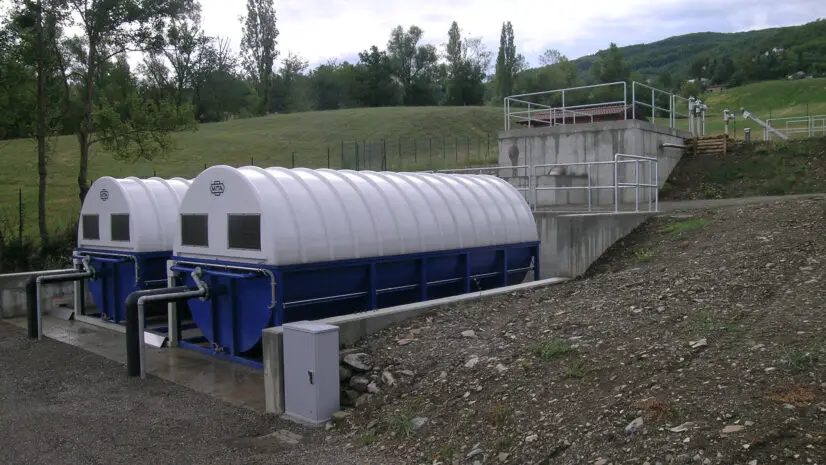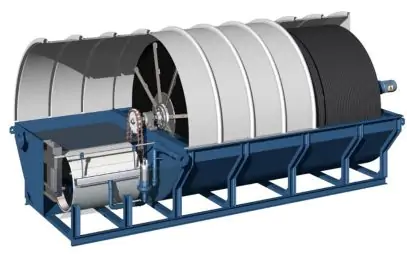Biocombi Compact Plants: Applications

What are the applications of Biocombi compact systems? In which structures have they been installed for the treatment of municipal and industrial wastewater?
Let’s start from a premise: Biocombi are a technology designed and created by MITA Water Technologies that synthesize biological oxidation and depth filtration in a system with very small dimensions: ideal for limited installation spaces.
Below, therefore, is a series of fields and sectors in which there are particularly successful use cases of Biocombi compact systems.
1. Small communities
The optimal range for the use of Biocombi in municipal discharges is between 50 and 1,500 population equivalents. In communities with high tourist fluctuation, low energy availability, shortage of personnel, possibility of future upgrades, proximity of the plant to the population center, etc., this compact system offers definite advantages over other alternative biological sewage systems. Some examples?
- Extraordinary ability to adapt to fluctuations, both in terms of flow rate and composition, of the sewage to be treated. In particular, when faced with underloads, the system reacts spontaneously without experiencing setbacks, unlike what can happen with plants with activated sludge technology.
- Low installed power and low energy use.
- Low maintenance and operating costs.
- Possibility of plant growth as the population served increases; low noise and no aerosols.
- High depuration rate.
2. Resorts and campgrounds
For this type of discharge, the plant is only operational for a few months of the year with an increasing inflow from June to August and decreasing inflow from August to September. The only biological treatment system that, sized for maximum capacity, can operate under all conditions and without corrective action is certainly the biodisc system.
Combined with a cloth filtration section, the compact Biocombi system provides complete purification treatment with reduced space requirements and high purification efficiencies. In addition to this, it is essential to have a process that is triggered in the shortest possible time at the influx of the first users or, even, service personnel before opening.
3. Construction sites
These waters can be traced in terms of their characteristics to those of discharges from small communities. Biocombi find an optimal field of use especially in light of the fact that they are one-piece in size, thus allowing easy transportability, quick start-up and enabling the plant to be moved several times where wastewater treatment is needed.
At the same time, the performance is absolutely comparable to a complete wastewater treatment plant. In this area, the combination of biodiscs and cloth filter offers the undoubted advantage of simplicity of adaptation to the various types of the discharge in terms of quality and quantity. The advantages of Biocombi also always include the minimal space occupied and ease of handling even by unskilled personnel.
Tell us your needs4. Hotels
Due to their nature as a compact system, Biocombi, like biodiscs, can be applied to hotel facilities with both seasonal and annual operations. The characteristics of Biocombi respond very effectively to the needs of the industry. In fact, it is always advisable to have plants that are ductile under all load conditions, both hydraulic and biological, and with the least possible manpower for maintenance and operation.
Compared with other biological treatment alternatives, the proposed system is less noisy and, because it is compact and can be enclosed within a building, has a better environmental impact. Finally, cloth filtration, placed in place of secondary sedimentation, ensures excellent results in terms of wastewater quality, resulting in guaranteed compliance with legal limits.
5. Schools
Treatment with compact Biocombi plants is proposed in this context because of its ease of operation and control in situations where personnel are scarce and unskilled. The flow rate obviously needs to be equalized as water is discharged for only a few hours a day.
Unlike other biological processes, Biocombi systems do not suffer even if they are not fed for long periods (weekends, summer shutdown, etc.). To complete the system, it is sufficient to provide good pretreatment (primary sedimentation, fine screening or similar systems) upstream of the equipment.
6. Highway service areas
This is one of the applications for which MITA Water Technologies has performed the largest number of machine installations over the years. In fact, one of the most important features of biodisc systems is the extraordinary ability of the system to adapt to fluctuations, both in terms of flow rate and composition of the sewage to be treated, which are often very large in discharges from a service area.
In particular, in the face of underloads, the system reacts spontaneously without backlash. In contrast, in plants previously designed and built with activated sludge technology, the shortage of organic matter that occurs in the face of underloads caused the process to stall. An additional advantage offered by the compact Biocombi system is the low maintenance and control required by service area operators. Finally, the compactness of the system, its scalability, and cloth filtration instead of traditional sedimentation make it ideal for this type of installation.
Ask for informationResources
Needs of wastewater treatment
Discover the solution for all needsComparing different technologies
Find out all the different technologiesFind out more
All technical articlesOur Newsletter
Sign up for the MITA Water Technologies newsletter: stay up-to-date on systems for municipal and industrial wastewater treatment and filtration.
